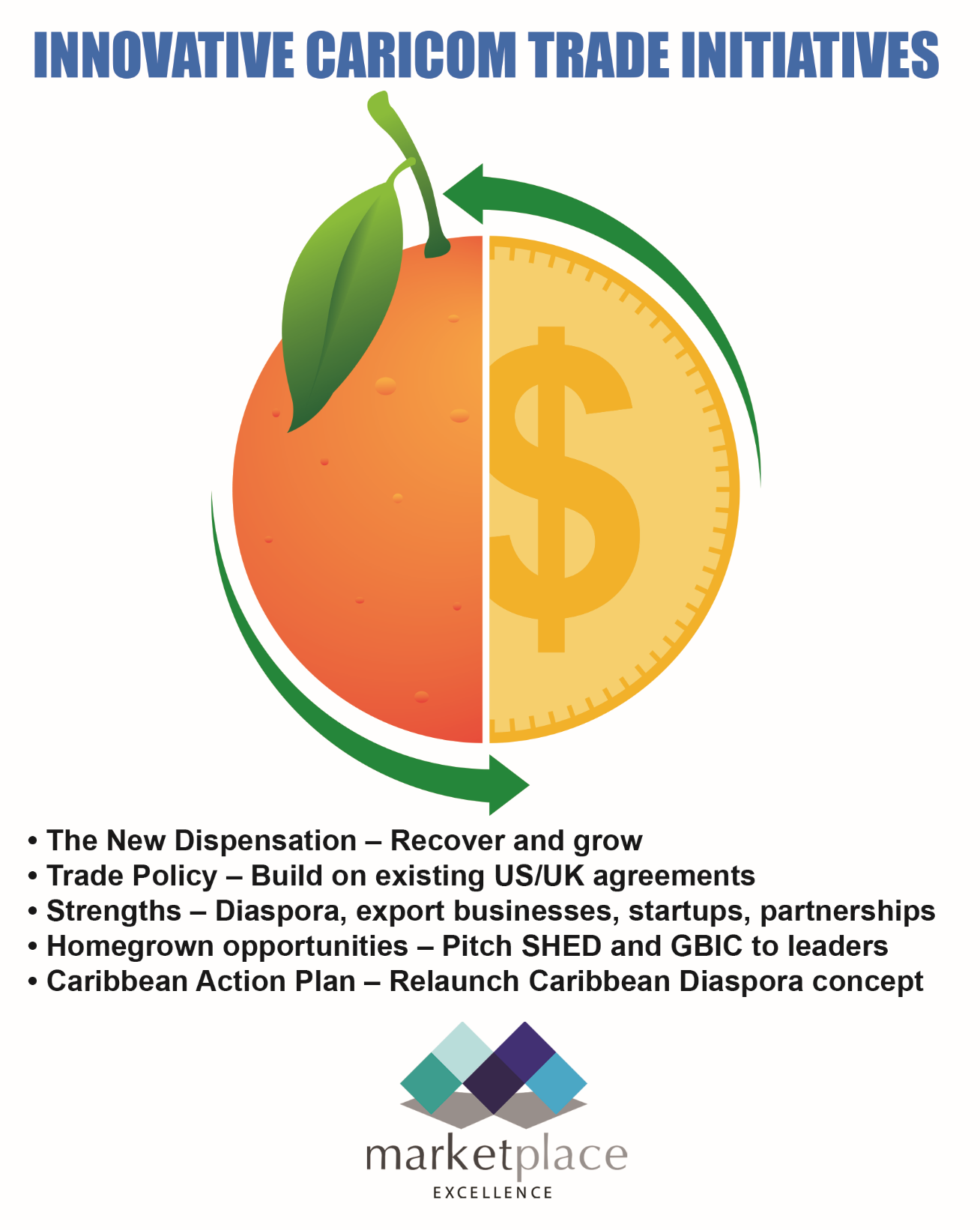“We are hard pressed on every side, but not crushed; perplexed, but not in despair; persecuted, but not abandoned; struck down, but not destroyed.” – 2 Corinthians 4:8-9
As in the two World Wars, the Spanish flu and other disasters in the 20th century, many lives were lost prematurely and some sources of income vanished, but in due time our economies recovered and grew. So too, after COVID-19, with a dynamic, positive, and innovative approach from our social partners, we can recover and grow.
Traditionally, the CARICOM countries’ leading trading partners have been the United States, the United Kingdom, the European Union, and Canada. Previously, trade in the cotton, sugar and banana commodities was supported by various preferential and other trade protocols and agreements. However, when external policy changes were introduced, exports of these commodities faded into the sunset. More recently, the primary sources of exports are in tourism and merchandise.
How can we diversify?
The World Bank, through its Caribbean Growth Forum series, has proposed that Caribbean services exports may offer greater potential for the future than merchandise exports.
In 1998, the Caribbean Development Bank advertised for a Consultant in Services Exports. The output from that consultancy in 2001 was an Information Memorandum entitled the “Caribbean Business Enterprise Initiative” – the purpose of which is to be a Caribbean catalyst turning concepts into commercial realities. It was launched as a private sector initiative and funds were raised for its implementation.
After thorough regional consultation, this initiative is about to be marketed as a Shepherding for Enterprise Development (SHED) initiative. Shepherding (life coaching and business mentoring) mitigates the high risk of business failure among startups and secures the financial investment. This represents an opportunity for human resources in the Caribbean and its Diaspora to be mobilized so that we can pull ourselves up by the bootstraps, engender hope and pivot to take advantage of potential global opportunities.
SHED will (1) pitch innovation to Caribbean leaders; (2) assign a Shepherd to a startup business; (3) massage the business concept for global market penetration; (4) provide marketing advice to brand the startup; (5) establish a quick response seed/equity/working capital growth fund; and (6) train project managers, entrepreneurs, shepherds, fund managers and the members of the Diaspora.
Our homegrown opportunities, which include SHED and the concept of the Global Business Innovation Corporation (GBIC), may be integrated into the structure of an already visioned Caribbean Diaspora initiative.
GBIC is a demand-pull initiative which has combined expertise in food design, open innovation systems, marketing communications, and agricultural production re-engineering to create a Caribbean food business innovation revolution to transform the Caribbean’s food and beverage industry.
The Caribbean Diaspora mission? To be a high-quality coordinator of catalytic Caribbean Diaspora services to foster sustainable Diaspora and Caribbean development while creating value for all stakeholders.
Let us structure this new initiative around our strengths and opportunities and establish a dynamic action plan. This new thrust will define sunrise industries to take us into the future.

(Dr. Basil Springer GCM is a Change-Engine Consultant. His email address is basilgf@marketplaceexcellence.com. His columns may be found at www.nothingbeatsbusiness.com.)
